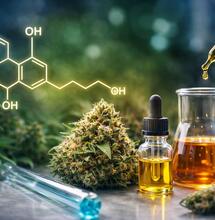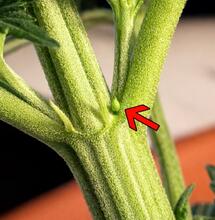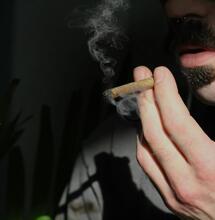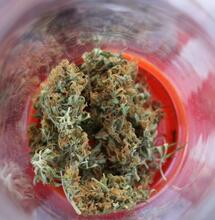Cannabis and Military Service: Is It Responsible?
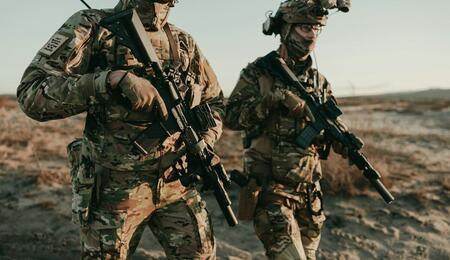
Cannabis is currently prohibited for U.S. military service members. Although this wasn’t always the case. Looking back, U.S. troops have used cannabis both recreationally and as medicine. Veterans of wars often end up homegrowing and medicating PTSD or other injuries they’ve picked while on service, but what about active duty members?
Testing Recruits and Strict Penalties
The military has been long obsessed with testing recruits for THC in the urine. Punishments are swift and could range from suspension of service to lowering ranks or assigning extra hours of work. Failing a drug test during pre-enlistment, threatens your chances of joining the army. It can even result in criminal charges under the Uniform Code of Military Justice (UCMJ).
As a matter of fact, marijuana’s active compound delta-9-THC is the most common substance that shows up on positive drug tests for active duty military service members. In recent years, several U.S. military branches have taken steps to unwind rigid marijuana-related restrictions, such as issuing waivers for recruits who return a positive THC result for their first time.
But does that solve the whole problem? Reportedly, some branches fail to meet their recruitment goals, precisely because current policy requires not to recruit new applicants who’ve happened to use cannabis. Even when a candidate has satisfactory results on the Armed Services Vocational Aptitude Battery (ASVAB) test, which measures a person’s ability for service - they will likely get rejected if they are THC-positive.
“The Navy recently suffered a 20% recruitment shortfall from its goals. In an attempt to enlarge the pool of recruits, it has continually lowered standards with interventions that overtly diminish the organization’s mission,” wrote Jasper Burns, a former Navy lieutenant, in a piece for Military.com, published August, 2024. “Rather than recruit and capture the large block of American cannabis users, the Navy is piloting accepting recruits with lower ASVAB entrance exam scores, down to the 10th and 30th percentiles.”
Marijuana Was the Second Most Used Substance in the Vietnam War
Alcohol was the drug of choice among American troops in the Vietnam War, and so were cannabis and heroin. Cannabis was the second most used substance in that war, with a 1976 study having shown that between 1967 and 1971, the proportion of soldiers having used marijuana peaked at 34%, while the number of troops who had used pot before deployment was below 10%. Soldiers often switched to heroin, which was available in very pure form, was inexpensive and harder to detect as there was no smell.
By 1971, more soldiers were being evacuated from Vietnam because of drug use than from war wounds. In October 1969, the army had adopted a nationwide voluntary treatment program primarily targeting marijuana abusers, according to sources. Army regulators of course did not accommodate the therapeutic perspective and stuck to being punitive. Only when losses of manpower became significant in the Vietnam War did the punitive approach soften.
Should Off-Duty Pot Use Be Allowed for U.S. Military Service Members?
Being part of the modern military doesn’t go hand in hand with being incapacitated by alcohol or recreational drugs for way more reasons than say there were in the Vietnam War. It poses a risk to discipline and performance, but also handling sophisticated equipment that was not available back in the day. Depending on the department, soldiers do have to deal with complex engineering and systems maintenance so that they can deliver on their duties. Officers must be sober when they make tactical decisions. And they mustn't be high either.
Where cannabis restrictions become a problem is definitely talent reductions or not choosing the better candidates during enlistment because of cannabis. Second, military readiness is jeopardized every time someone fails the test and they need to be removed from duty, as pointed out by Burns in his article for Military.com. “Military leadership cannot, should not, and need not go so far as to ‘allow’ illegal substances to create conflicts between the Uniform Code of Military Justice and federal law. They need only turn a blind eye to off-duty use,” he wrote, suggesting that a ‘Don’t Ask, Don’t Test’ policy might work as a solution and lead to better outcomes for each side.
Nowadays, cannabis has become commonplace, much like alcohol. In legal terms, for recruits, the same restrictions should probably apply for cannabis as they do for alcohol. But as long as marijuana remains Schedule I substance, it will be in direct conflict with interest and politics of the federal government. It’s encouraging that the discourse has moved from dead point. Last year, the U.S. House voted to ban the military from testing recruits for marijuana as a condition for enrollment, despite opposition by the White House. But as is everything with cannabis, you have to push it again and again for something to succeed.
Also read on Soft Secrets:




